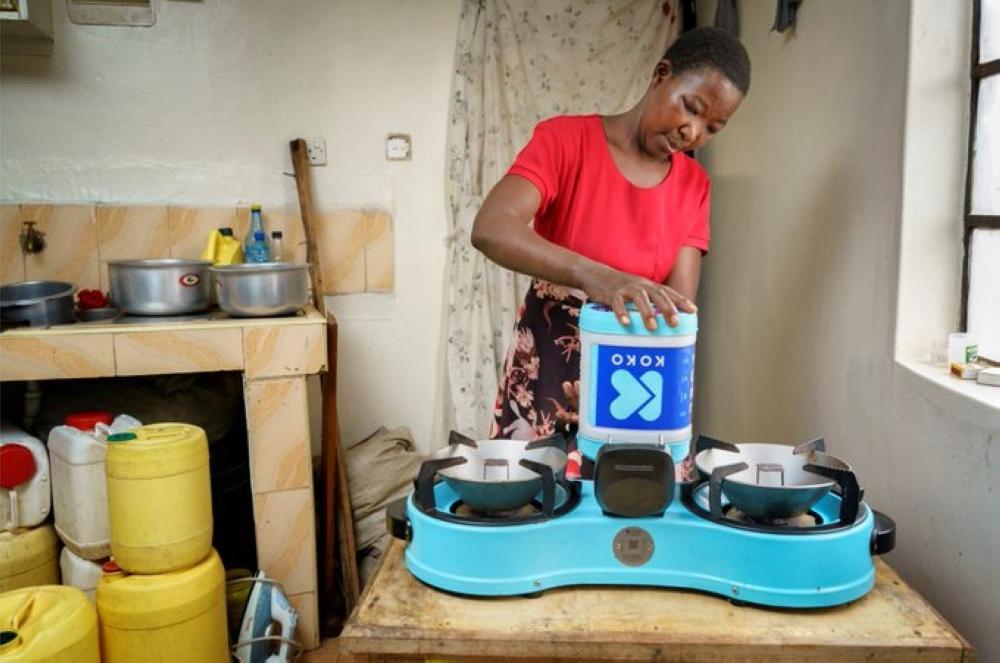Africa-Press – Rwanda. At least one million households in Rwanda are expected to adopt bioethanol as a clean cooking fuel within the next five years, as part of a broader push to reduce dependence on wood-based fuels and curb carbon emissions.
Bioethanol is a renewable energy source produced by fermenting plant-based materials such as sugarcane, maize, or agricultural waste. It offers a cleaner and safer alternative to traditional fuels, with the potential to improve public health and mitigate environmental degradation.
Rwanda has set ambitious targets to reduce reliance on wood fuels (charcoal and firewood) to 42% by 2030 and cut national carbon emissions by 38%. However, a Senate report presented on Monday, August 4, revealed that the 2024 interim goal of reducing wood fuel usage from 83.3% to 42% was not achieved. Instead, usage has surged to 93%.
Senator Laetitia Nyinawamwiza, Deputy Chairperson of the Senate’s Committee on Economic Development and Finance, urged the country to accelerate the rollout of clean cooking solutions like bioethanol.
“We have seen the introduction of bioethanol cookers on the Rwandan market, with a station where households can refill cylinders. However, awareness remains low, and many citizens are unaware of these alternatives,” she said.
Scaling up distribution
Rwanda Energy Group (REG) confirmed that KOKO Networks, the firm leading the distribution of bioethanol in Rwanda is currently in the pilot phase and has signed an agreement with the Rwanda Development Board (RDB) to begin local production of the fuel.
According to Doreen Rwigamba, Strategy and Investment Manager at KOKO Networks, 25,000 households have already adopted the technology.
“We plan to reach one million households within the next five years. The stove is priced at Rwf 22,000, and ethanol costs Rwf 850 per litre,” she said.
KOKO’s model involves importing ethanol from regional markets, storing it at petrol stations, and delivering it to consumers through smart, automated vending machines. For now, distribution is limited to urban areas.
To keep costs affordable, the company uses carbon credits to subsidize fuel prices.
Future plans for local production
Although bioethanol is not yet produced in Rwanda, the company is exploring the feasibility of local production once it reaches at least 250,000 customers. However, there are no current plans to manufacture the cookers locally.
In 2022, the Government of Rwanda signed a US$25 million agreement with KOKO to establish a national bioethanol cooking fuel utility. The partnership includes commitments to provide an enabling policy environment, such as removing VAT and import duties on bioethanol fuel and equipment—benefits that are expected to be passed directly to consumers.
Rwanda is targeting universal access to clean cooking by 2030 to combat indoor air pollution, deforestation, and health risks linked to the widespread use of charcoal and firewood.
KOKO’s climate-tech platform—already operational in Kenya—relies on a two-burner cooker connected to smart canisters. Users access a dense network of “KOKO Point” fuel ATMs refilled by smart micro-tankers. The system is managed via cloud-based software that handles payments, fuel tracking, and carbon accounting.
Experts warn that Rwanda will need to dramatically scale up demand to make local production of bioethanol economically viable. A pre-feasibility study will be required to assess potential environmental impacts, including on food security and natural resources.
At a 2024 consultative meeting held under the Global Bioenergy Partnership (GBEP), stakeholders emphasised the need to identify sustainable feedstock sources—such as rice straw or cassava peels—to avoid diverting crops from food use.
They also stressed the importance of increased private sector engagement, improved regulatory frameworks, and awareness campaigns to overcome adoption barriers and scale up clean cooking access nationwide.
For More News And Analysis About Rwanda Follow Africa-Press






